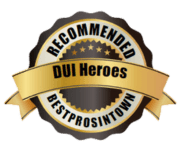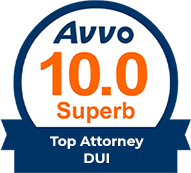
-
Nationally Published Innovator in DUI Defense
-
Collaborative Team Approach to DUI
-
Prioritizing Client Care Over "Case Management"
Snohomish County Unlawful DUI Stop Attorneys
Fighting Unlawful Police Stops for DUI in Washington State
People charged with a DUI are typically pulled over for some other reason, usually a traffic violation like speeding. In some cases, the officer’s “probable cause” or reason for stopping you may not be warranted or applicable. In such a case, if it can be shown that a police officer illegally stopped you, any charges against you arising from that illegal stop—including DUI—must be dismissed. The downside? It can be difficult to prove that a police stop was illegal, and as such it requires an experienced Washington DUI lawyer who can convince a judge or jury that the officer was acting outside the bounds of their authority.
DUIHeroes has developed a network of private investigators and expert witnesses in order to thoroughly investigate every element of your arrest: the circumstances, evidence, and witnesses—including the arresting officer. As certified instructors in field sobriety testing, we have insider knowledge about proper police procedure that allows us to more quickly spot civil rights violations. Sometimes, we can even establish the officer in question has a pattern of unlawful stops or uncover conflicting evidence from eyewitness testimony. While difficult to prove, defense on the basis of an unlawful police stop can also result in the complete dismissal of your DUI charge and case.
For more information about illegal police stops and DUI arrests in Washington State, speak to a DUI attorney at DUIHeroes by calling 1–800-DUI-HERO. We proudly serve Seattle, Everett, Lynnwood, and throughout Washington State.
What Is Probable Cause DUI in Washington Law?
You might’ve heard the phrase ”probable cause" in a movie and crime procedural on TV, and for good reason—its importance in real-life criminal cases cannot be overstated. Probable cause refers to an amount of observable evidence that gives police officers the authority to stop and search citizens when a crime has occurred, is about to occur, or is being perpetrated. If officers lack probable cause, they cannot stop or search a person without their consent.
When it comes to DUI investigations, probable cause requires officers to detect, with all their available sense, verifiable signs that a driver may be intoxicated. This can happen while observing the driver operate their vehicle or during a stop that was initiated for another reason (such as speeding or a broken taillight). In drunk driving cases, probable cause can mean the difference between conviction and dismissal of all charges.
Examples of probable cause in drunk driving cases include:
- Swerving, drifting, or other erratic driving maneuvers
- Slurring speech
- Witnessing an intoxicated individual get into their vehicle
- The scent of alcohol
- The presence of an open container
- Poor performance in a roadside sobriety test
When There Is No Probable Cause in a DUI Case
It’s important to remember that just because an officer believes he or she has probable cause does not mean the court will agree. However, when these officers proceed to detain or search an individual without probable cause, then that individual’s constitutional rights against illegal search and seizure have been violated. In most cases, this can mean that the case against the accused can be dismissed.
Suspects fearing arrest should have two goals going into a police interaction: withholding consent to any searches, and responding to all questions (outside of self-identification) with the request to call your lawyer. Field sobriety tests, including tests of physical coordination and portable breathalyzers, are strictly voluntary—compliance offers zero advantages. The express purpose of a field sobriety test is to establish probable cause, which means even a ‘passing’ performance makes arrest more likely.
Recognizing and asserting probable cause issues in DUI cases can be difficult, so it requires an unlawful DUI stop attorney with substantial experience in this practice area to know when their client’s rights have been violated. At DUIHeroes, we have dedicated our entire practice to DUI defense and staying on top of the latest changes and developments in DUI law. If you believe your DUI charge was the result of an unlawful stop for lack of probable cause (or any other reason), we urge you to contact our offices.
Defense for Illegal Police Stops in WA
Law enforcement and prosecution must prove that they have sufficient cause to stop you and were not choosing you arbitrarily or at random. In addition, once stopped, the officer only has a short amount of time to question you to detect evidence of DUI.
We always recommend to clients that when and if they are stopped not to argue with the officer, but politely request to contact an attorney as soon as possible before answering any questions. The time to argue is with a lawyer at your side who can protect your rights and who understands the law. Call our offices if you have been arrested for DUI and sense it was an unlawful traffic stop.
Contact DUIHeroes online or call 1–800-DUI-HERO for help fighting an unlawful DUI arrest.

OUR VISION
"The vision of DUIHeroes is to change the way the public views individuals charged with a criminal offense. And, to change the way they view the criminal defense attorneys who ethically and professionally stand up for and defend the rights of those individuals every day, because those rights are guaranteed to every single one of us. No matter what."
- Founding Attorney, Jonathan Dichter

-
“That's when I saw the miracle happen!” - S.C.
-
“They supported and fought for me through all of my legal challenges!” - L.W.
-
“I recognize and respect the team's level of expertise and professionalism...” - Anonymous











.2307241558522.png)


























